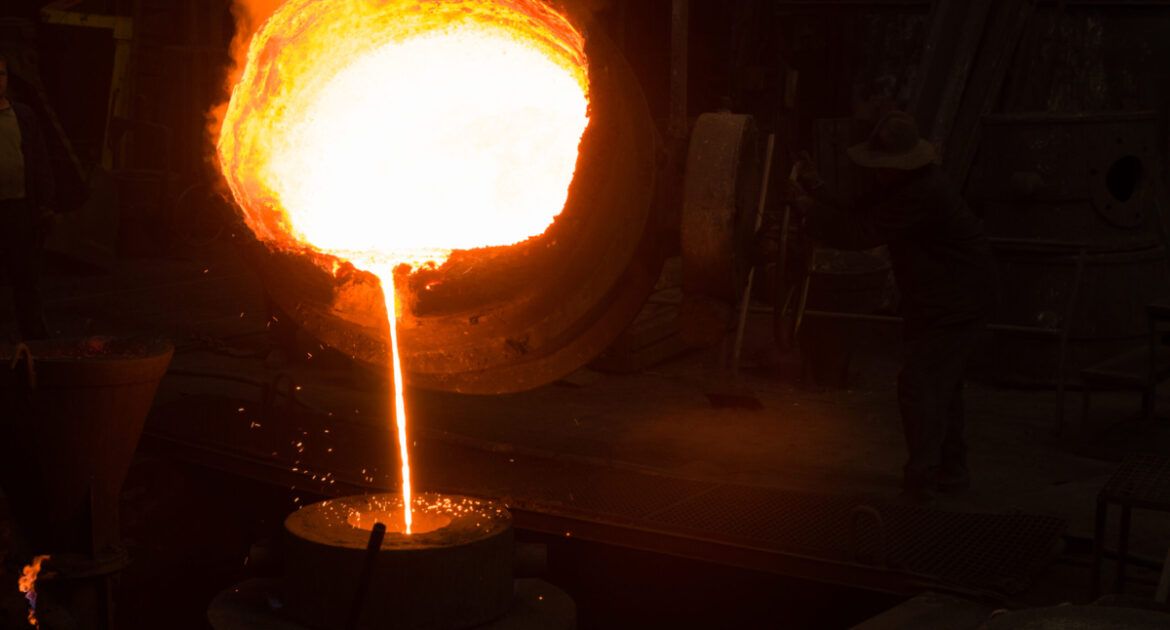Are you a metallurgy and minerals technology researcher looking for your next project?
Perhaps you’ve just completed a PhD in a related field and want to pursue your interests as a postdoctoral researcher or lecturer.
In this section of our Engineering and Technology series, we look at entry routes into this highly-specialised area and the qualifications and experience you’ll need to progress your academic research career.
Metallurgy and minerals technology experts research and develop technologies used in an array of products and industries. From the extraction of natural resources to advanced mechanics, researchers in this field explore how materials behave and how they can be utilised in a more sustainable way.
Career Path
On completion of a first degree and MSc/MEng in a related area, the traditional route into a research career is generally through a PhD in a field specific to metallurgy or materials science. However, some programmes may be willing to consider equivalent relevant experience and professional qualifications in industry.
Your next step would be to search for postdoctoral research projects which align with your specialist knowledge and expertise.
You’ll find that many metallurgy and minerals technology research projects and initiatives are sponsored or joint-funded by industry partners, particularly in the automotive, aerospace, medical, mining and manufacturing sectors.
Most research jobs are offered on a temporary, fixed-term basis and you might need to complete a couple of postdoc research contracts before applying for promotion to senior research associate, fellow or lecturer.
Working as a Metallurgy and Minerals Technology Researcher
Research and development in this field spans a wide range of multi-disciplinary projects and activities.
Current research is particularly focused on the sustainability of materials and resources – both natural and composite – and how to apply research to the development of environmentally-friendly manufacturing methods.
Metallurgy and minerals research can be broadly divided into the following areas of interest:
- Physical, extractive and chemical metallurgy
- Advanced materials/mineral processing technology
- Biomedical alloys
- Robotics
- Environmental sustainability
- Multi-functional materials
As a metallurgy and minerals researcher, you’ll spend most of your time in a laboratory performing experiments and designing and testing new technologies.
Duties include:
- Working in a multi-disciplinary team of academics and experts
- Collaborating with research partners in industry
- Developing objectives and grant proposals
- Writing up research for publication
- Identifying new areas of research
- Presenting at national and international conferences and events
- Ad hoc teaching and demonstration (if you work in a university)
Where to find jobs
Metallurgy and minerals research is generally linked to university departments of materials science, but there is significant crossover with other physical sciences and engineering disciplines as well. You’ll also find jobs available in research institutes, materials science and engineering industries and public sector bodies around the world.
Job availability depends on funding and whether your expertise fits with a project or initiative. To find out how metallurgy and minerals technology research is funded in the UK, and to explore current projects visit: UK Research and Innovation (UKRI).
If you choose to work as a researcher in a university, here are some of the roles you may come across during your search:
- PhD studentship
- Research assistant
- Research technician
- Postdoctoral researcher/associate
- Research associate/fellow
- Lecturer/Senior Lecturer
Find research jobs in metallurgy and minerals technology here.
Salaries
Salaries in science and engineering research vary depending on the field and specific research activities of the university. However, as a general rule, postdoctoral researchers and research associates can expect to start on a salary of around £30,000 to £39,999 p.a.
PhD Studentships
If you’re interested in a research career in metallurgy and minerals technology, you might be thinking about undertaking a PhD in a related area.
Metallurgy and minerals technology research is cross-disciplinary and essential to the development of new technologies used in a multitude of industries. Specialists in areas related to materials science/materials engineering are in high demand and you’ll find a wide range of PhD studentships available.
A PhD takes around 3-5 years to complete; most are fully-funded and come with a UKRI standard stipend in the range of £15,000 and £20,000 p.a.
Find PhD studentships in metallurgy and minerals technology here.
Further Information:
- Academic jobs in Metallurgy and Minerals Technology
- Lecturing jobs in Metallurgy and Minerals Technology
- Senior-level academic jobs in Metallurgy and Minerals Technology
- Institute of Materials, Minerals and Mining (IOM3)





Leave a Reply